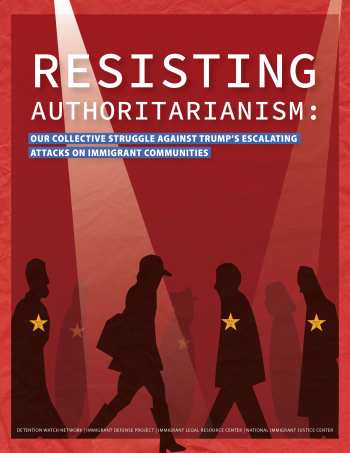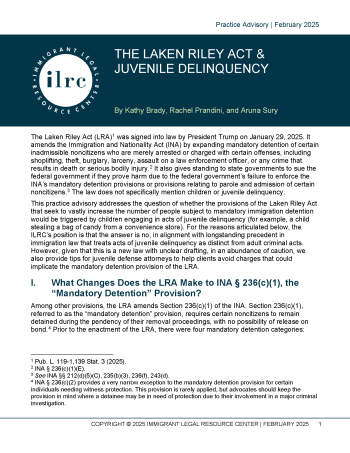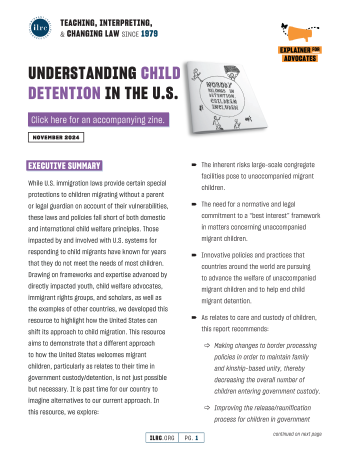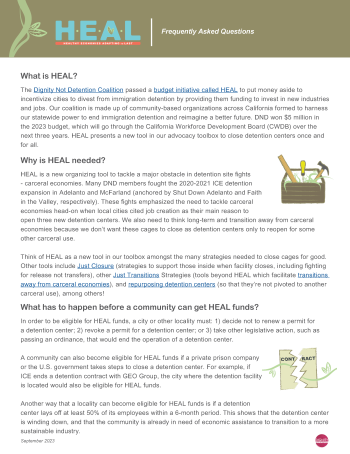




Requesting Bond and Parole for Asylum Seekers
In this webinar, we will discuss how asylum seekers, including recent entrants, can seek release from immigration custody via bond and parole. We will review eligibility for bond and parole for arriving aliens, and the implications of Matter of M-S-...
Detention
The Department of Homeland Security detains hundreds of thousands of immigrants every year throughout the United States. This entirely unnecessary, inhumane practice is wrought with extreme human rights abuses, and severely erodes the few due process protections provided to immigrants in removal proceedings.
The Immigrant Legal Resource Center works in partnership with a broad array of organizations including impacted immigrants themselves, to advocate for policies that create a path toward abolishing this abusive system. Our team works at the forefront of statewide campaigns to dismantle immigrant detention, as well as engaging in federal advocacy in Washington, DC. In California, the ILRC has been leading on these issues for several years -- co-sponsoring California’s historic Dignity Not Detention Act (SB 29), which was first introduced in 2016. We have continued this work by pushing for stronger legislative protections around immigration detention, for example by advocating for AB 103 in 2017 and AB 32 in 2019. The ILRC is available to provide support on similar laws or policies in other states. Locally, the ILRC provides resources and support to communities and organizations working to fight immigration detention and other enforcement issues, including background explanations, strategy tools for campaigns, and legal and policy analyses.